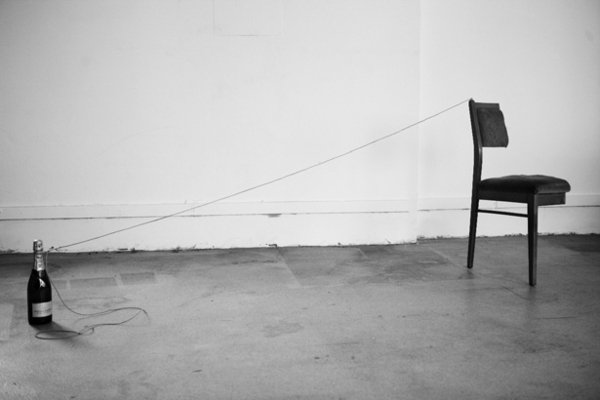Golden Times
dal 14/1/2010 al 10/4/2010
Segnalato da
14/1/2010
Golden Times
Haus der Kunst, Munich
In the exhibition Steven Claydon, Diango Hernandez, Mai-Thu Perret and Sung Hwan Kim examine the complexity of history in individual ways. As different as their works are, these artists regard history as elastic or fragmentary, as a question of interpretation, narration and fiction - just as historical golden ages are often idealized and almost mythical in character.

History has increasingly become a commodity. Since the 80s, more and more books are being published on the topic, TV addresses the subject in discussions or documentary dramas and cinema looks to historical events for inspiration. This interest could be attributed to significant changes in our collective view of the world. At least since the end of the Cold War, history is no longer perceived as chronological – the grand narrative has collapsed. Instead a fragmentary picture, fed on new insights, voices and perspectives has emerged. This became particularly apparent in the last years when the 1968 student protests and the 1989 fall of the wall had their anniversaries. Personal experience, parallel narratives, authorship, authenticity, shifts in time, facts, references and representation have all become equally important.
In the exhibition 'Golden Times' Steven Claydon, Diango Hernández, Mai-Thu Perret and Sung Hwan Kim examine the complexity of history in individual ways. As different as their works are, these artists regard history as elastic or fragmentary, as a question of interpretation, narration and fiction – just as historical golden ages are often idealized and almost mythical in character.
Steven Claydon (b. 1969 London, where he is based) is concerned with veneration as a motif and with the representation of the venerated. This includes representations of historical figures in memorials and monuments, occult objects and the use of things like flags and symbols by political and cultural groups as a form of image cultivation. For 'Golden Times' Claydon focuses on the Munich Secession movement. Founded in 1892, it was the first collective secession of its kind and, in several of its exhibitions, the group strove to document a different understanding of art.
The presentation by Diango Hernández (b. 1970 Sancti Spiriti, Cuba; based in Dusseldorf) is characterized by 'Years' (2008), a fragile construction made of rusted steel. The skeleton-like room divider is comprised of the numbers of the years 1959 through 2008, that can be regarded as an 'objectified' timeline. The dates represent Fidel Castro's period in office, from the time he became prime minister in 1959 to his age-related resignation in spring 2008. 'Years' thereby forms the pattern or the glasses through which all Hernández's other works in this room can be viewed: the history of Cuba from the revolution to the present day.
Mai-Thu Perret (b. 1976 Geneva, where she is based) expands the terms of authorship, reality and fiction. As a possible historical model for her ongoing fictitious project 'The Crystal Frontier' (since 1998), Perret presents a new work: a film about the lives of sculptor couple, Katarzyna Kobro and Wladyslaw Strzeminski, who were central figures of the Polish avant-garde in the 20s. These biographical episodes are intertwined with scenes based on 'We', a Russian science fiction novel by Yevgeny Zamyatin, which tells of a totalitarian society in the 26th century. The film is projected onto an enlarged, pavilion-like version of a constructivist sculpture by Katarzyna Kobro.
Sung Hwan Kim (b. 1975 Seoul, South Korea; based in New York) is a story teller, who creates visual, verbal and atmospheric collages: words spoken by the artist off screen appear simultaneously as texts on the image surface; drawings are created in real time in front of the camera or are animated by the artist himself. As the variable leading man, Kim slips into the most diverse roles: as director, illustrator, cutter, narrator, performer and composer. Together with David Michael DiGregorio, Kim composes soundtracks that along with excerpt-like, semi-surreal stories lead the viewer into his personal universe.
Sponsored by Outset Contemporary Art Fund e.V. and Pro Helvetia, the Swiss foundation for culture
Part 2 from 12 February, 2010
Sung Hwan Kim
Image: Diango Hernández, We Can't Celebrate, 2008
Courtesy Paolo Maria Deanesi Gallery, Rovereto, Italy
Press contact:
Elena Heitsch tel + 49 89 21127 - 115 fax: + 49 89 21127 - 157 mail: presse@hausderkunst.de
Haus der Kunst
Prinzregentenstr. 1, 80538 Munich
hours: mon–sat 10–20 h, sun 10–22 h
free admission



